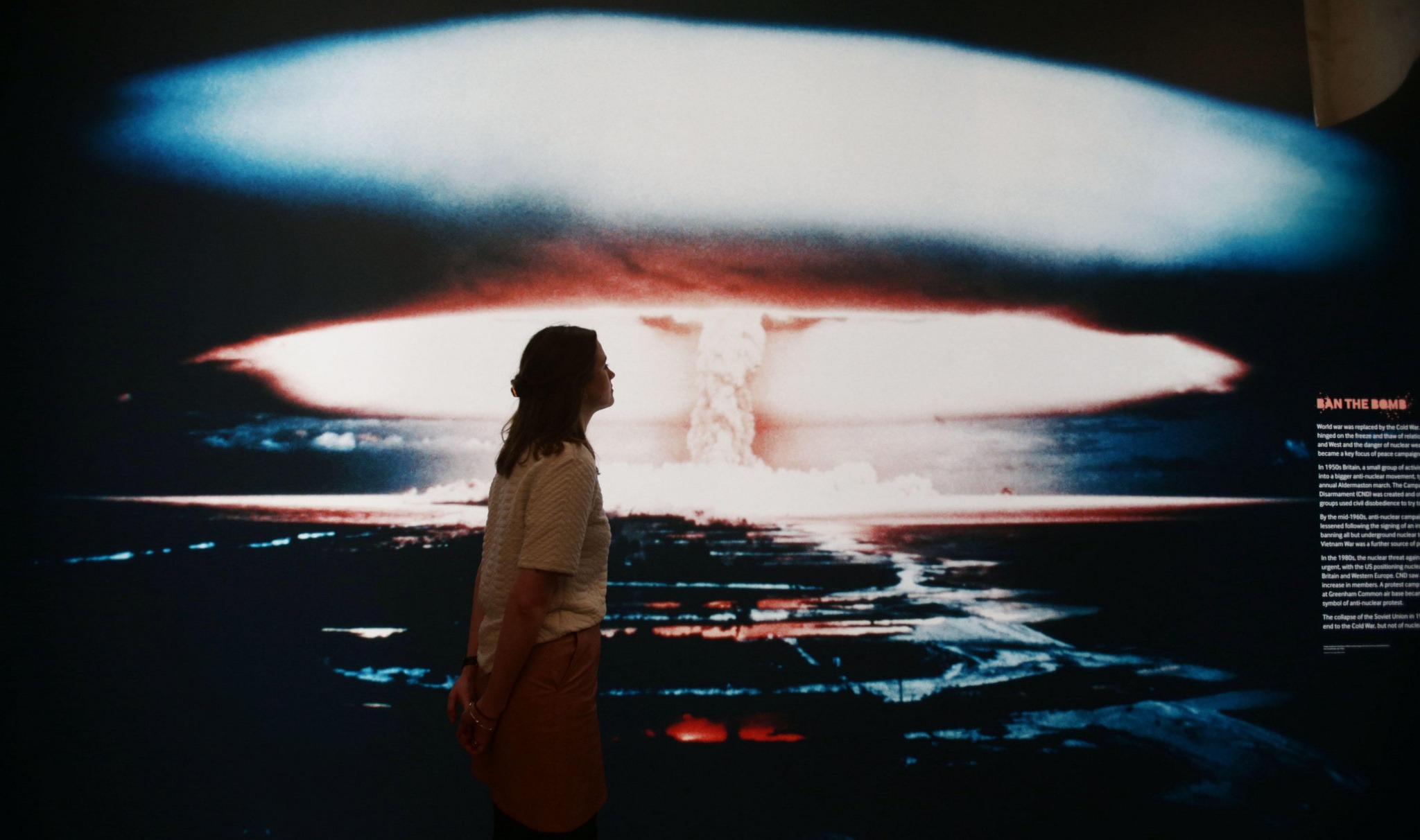Richard Norton-Taylor
 Britain tested nuclear weapons in the Pacific in the 1950s. (Photo: Yui Mok / Alamy)
Britain tested nuclear weapons in the Pacific in the 1950s. (Photo: Yui Mok / Alamy)
Britain spends a larger portion of its military budget on nuclear weapons than any other state, a major report published today reveals.
Rishi Sunak’s government is putting 12 per cent of defence expenditure – equivalent to £12,000 every minute – towards the UK’s arsenal of at least 225 warheads.
Sunak increased spending on nuclear weapons last year by 17 per cent to £6.5 billion – a greater increase than any other nuclear power except the US.
Over the last five years UK expenditure rose by a staggering 43 per cent.
The startling figures appear in new research by the International Campaign to Abolish Nuclear Weapons (ICAN), a widely respected group that was awarded the Nobel Peace Prize in 2017.
ICAN calculates that Britain is the world’s fourth highest spender on nuclear weapons after the US, China and Russia.
Nuclear Starmer
The group’s report comes at a time when the Labour leadership is championing nuclear weapons. The party’s manifesto states: “Our commitment to the UK’s nuclear deterrent is absolute.”
This spending commitment is in stark contrast to Keir Starmer’s extreme caution when it comes to investing in public services.
The party describes the “independent nuclear deterrent” as “the bedrock of Labour’s plan to keep Britain safe”.
However, it is far from independent. Regular flights from the US carry material that are essential ingredients of Britain’s Trident nuclear missile system.
A Mutual Defence Agreement (MDA) between Britain and the US enshrines Whitehall’s reliance on the Pentagon for essential technology.
The agreement, which is due to be renewed this year, is incorporated in US law. Yet it has no legal status in Britain and has never been the subject of a substantial debate or vote in parliament.
The Liberal Democrats’ policy is identical to those of the Conservatives and Labour, saying they will “maintain the UK’s nuclear deterrent with four submarines providing continuous at-sea deterrence”.
The Scottish National Party has a long record of being opposed to nuclear weapons, which it says are “wrong strategically, morally and financially.”
It adds that it supports long-term investment in the Trident submarine base in Faslane as a conventional military base.
The Green party says it would “dismantle Britain’s entire Trident nuclear deterrent and remove all foreign nuclear weapons from UK soil.”
Corporate subsidies
The ICAN report also shows how companies like BAE Systems and Rolls Royce spend millions lobbying for contracts.
BAE Systems, Britain’s largest arms company, received nearly £2.6bn for nuclear weapons-related work.
It spent around £3.9m lobbying governments and had 42 meetings with senior government officials last year, according to the ICAN report.
ICAN accuses recent British governments of an “irresponsible lack of transparency” over the cost of the country’s nuclear weapons programme.
Trident has been widely estimated to cost more than £200bn over a 30-year lifespan.
The Ministry of Defence has not challenged the figure but has never published any estimate of its own.
A recent report by the National Audit Office warned that the cost of replacing Britain’s nuclear weapons system will cost more than £99bn over the coming decade, an increase of more than £38bn in a year.
The ageing Vanguard-class fleet of Trident submarines have had to endure longer than planned patrols because of unexpected technical problems and the plan to replace them with a new Dreadnought-class have been subjected to delays.
In 2016, a Trident missile veered off course during a test firing. A subsequent £17m test earlier this year saw a missile fired by HMS Vanguard fail and land in the sea close to the launch site.